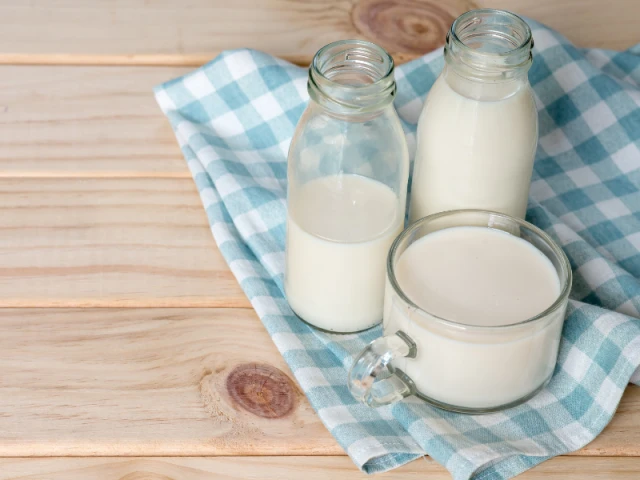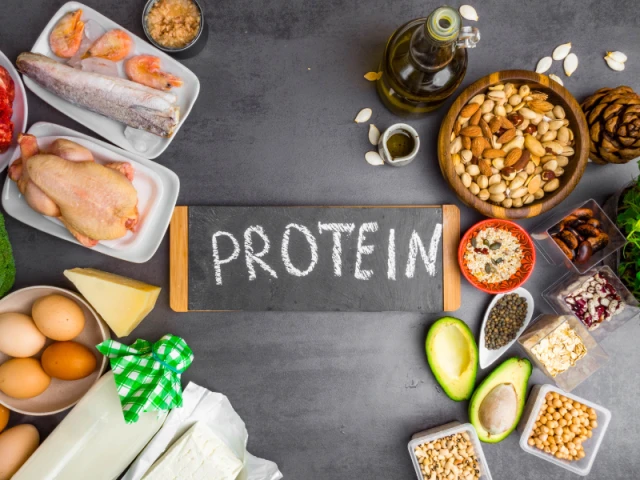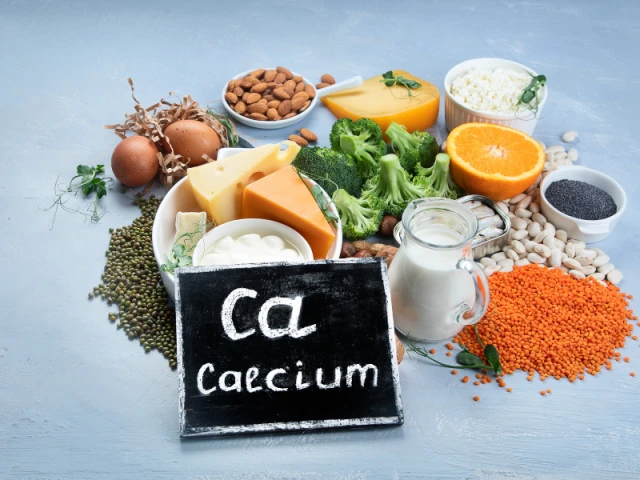
Using enough protein is very important for our health. However, the amount of protein needed depends on each person's nutritional needs. According to nutrition experts, adults should consume about 0.8g of protein per kg of body weight per day. If you engage in intense physical activity, you may need additional protein to recover your muscles. However, consuming too much protein can be harmful to your health. Consult with a nutritionist to determine the appropriate amount of protein for your body.
What is protein?
Protein is known as the building block of life. It breaks down into amino acids that are used in cell development and repair. Our body needs protein for muscles, bones, skin, blood, and collagen. The enzymes in our body are also made of proteins, although they are specialized.
(1).png)
We get protein mainly from animal products such as meat, fish, eggs, milk, and in smaller amounts from plant-based foods such as tofu and vegetables. Unlike fats and carbohydrates, the body does not store energy from protein. What is not used by the body is processed by the kidneys and excreted. This is good news for those trying to achieve or maintain a healthy weight range.
Did you know that up to one-third of women aged 20-40 do not meet their daily recommended intake (RDI) for protein? So, how much is enough? This depends on the stage of life and level of activity. The RDI recommendation for sedentary individuals is about 0.8 grams/kg body weight (or ideal body weight if trying to lose weight).
For the average 65kg woman, the recommended daily intake is 52 grams of protein. These requirements increase to 0.1g/kg body weight during pregnancy and 1.1g/kg body weight while breastfeeding. Older adults and those recovering from injury may have slightly higher protein needs than the general population. Burn patients and cancer patients require the highest protein intake, about 2g/kg body weight.
Protein for Active Communities
Assuming you engage in regular exercise, your protein needs will be slightly higher than those who are less active. Studies have shown that endurance athletes require 1.2-1.4 grams of protein per kilogram of body weight, while for healthy athletes, anywhere from 1.4-2.0g/kg of body weight is necessary.
(1).png)
A good rule of thumb is to get around 15% of your daily energy requirements from protein sources. For someone consuming a total of 6000kJ per day, their energy from protein sources would be around 900kJ (or 53 grams of protein as 1 gram of protein = 17kJ). Contrary to some beliefs, there is no evidence to support the notion that high protein consumption has any adverse effects on a healthy normal body. However, protein restriction is often observed in people with kidney problems or impaired kidney function. If you suspect any kidney issues, you should talk to your doctor before consuming more than RDI for protein or embarking on any weight loss program.
Protein for Weight Loss
Individuals who are trying to lose weight often increase their protein intake in their diet, which serves a number of purposes. Protein helps to provide a feeling of fullness after consuming it. This is because protein takes longer to digest than carbohydrates, helping you feel full for longer. From a weight loss perspective, increasing protein intake can help to reduce hunger and cravings, and reduce the urge to eat a carbohydrate-rich meal. For those following a low-carbohydrate plan, protein can help maintain muscle mass, ensuring that muscle is not broken down. This maintains a metabolic exchange to maximize the body's ability to burn excess energy. When on a low-carbohydrate diet, ensure that you consume 15-30% of your daily energy requirements from protein sources.
(1).png)
Protein Content of Common Food Sources
Whether you are a meat-eater, vegetarian, or vegan, there are plenty of food options to tantalize your taste buds and provide you with an adequate amount of protein. For meat-eaters, the obvious choices are meats such as chicken, beef, pork, and fish, as these foods contain approximately 1/3 protein. For vegetarians, dairy and egg products are often the main sources of protein in the fridge. Vegetarians must rely on plant-based protein. Soy products such as tofu are one of the richest plant-based protein sources for vegetarians.
Check your protein requirements and ensure that you are getting enough to meet your daily needs and keep you feeling satisfied throughout the day.
 Vietnamese
Vietnamese English
English




